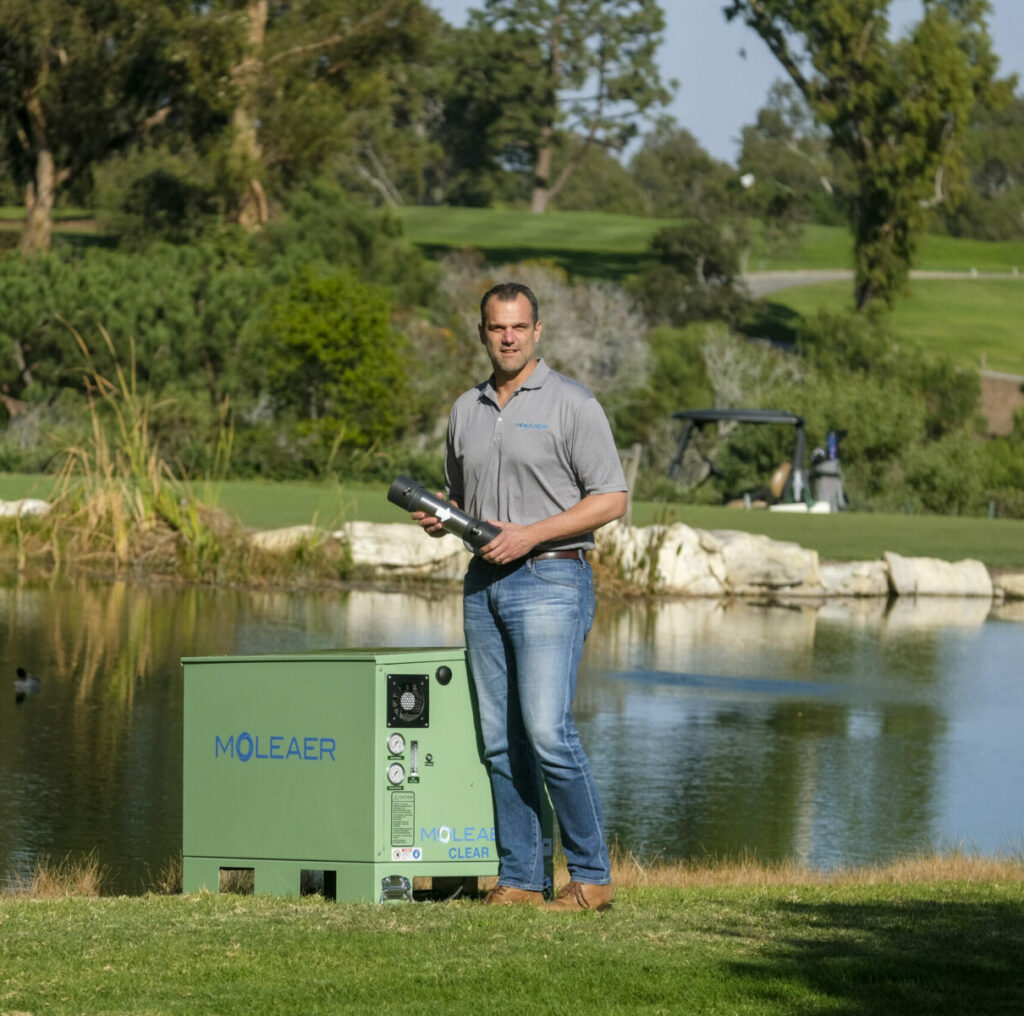Carson-based water-aeration company Moleaer Inc. on June 13 announced it had closed a $40 million Series C financing round and plans to use the proceeds to fund additional deployment of its aeration technology, which uses microscopic nanobubbles.
The funding round was led by New York investment giant Apollo Global Management Inc., with participation from Stockholm, Sweden-based outdoor power products and garden-care company Husqvarna Group and previous investors. It brings the total amount raised by Moleaer to about $61 million.
“As the world faces a water shortage and an energy crisis, we believe that Moleaer’s nanobubble technology will be an important tool for companies and industries trying to adapt to these new realities while also meeting customer and stakeholder demands,” Wilson Handler, partner at Apollo, said in the announcement.

Moleaer – pronounced like the name of French playwright Molière – uses microscopic gas bubbles, called nanobubbles, to aerate water or other liquids. The nanobubbles, which are less than 0.04% the size of a grain of salt, stay in the liquid much longer than larger bubbles from traditional aeration devices. That allows more time for the oxygen the nanobubbles carry to disperse into the surrounding body of water or other liquid.
With higher oxygen levels, conditions in the water are less favorable to the creation of algae and other harmful compounds. And in situations where water is used to irrigate crops, nanobubbles allow more oxygen to penetrate into the crop roots, significantly boosting productivity.
The nanobubble technology was developed by two wastewater treatment industry veterans, Warren Russell and Bruce Scholten, who discovered a way to shear off bubbles early in their formation process to prevent them from becoming larger.
In early 2017 the pair decided to form a company to commercialize the process. They were soon joined by early investor Nick Dyner, who became Moleaer’s chief executive.
Moleaer sought to apply its technology to wastewater treatment and farm irrigation opportunities throughout the U.S. and around the globe.
Today, the company operates more than 1,500 nanobubble installations in about 30 countries that combined treat more than 500 million gallons of water per day.
Now, armed with an additional $40 million war chest, the company plans to expand into new geographic, industrial and agricultural markets.
“Looking to the future, it is our belief that nanobubble technology will be a standard kit in any water-based industrial process and natural water body,” chief executive Dyner said.
